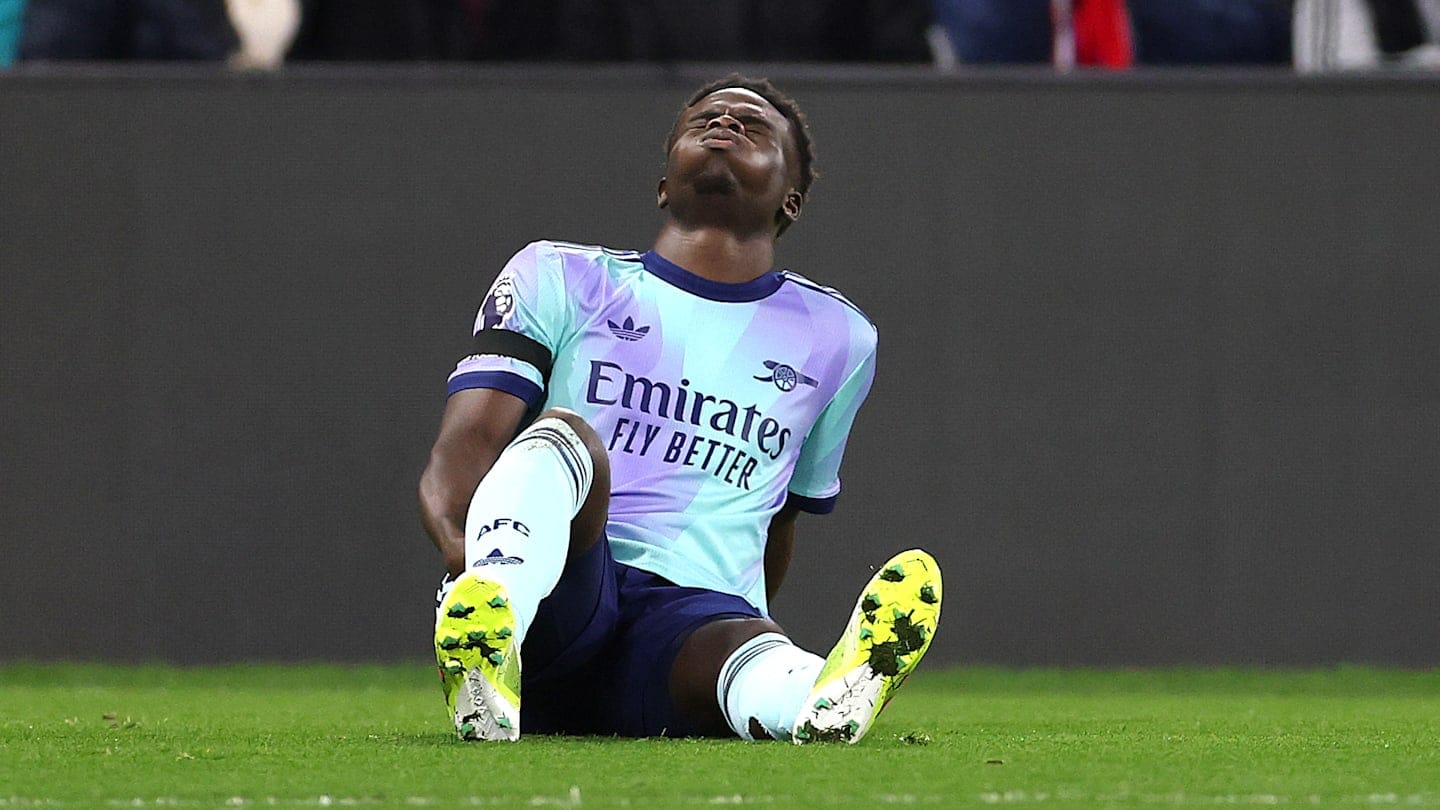
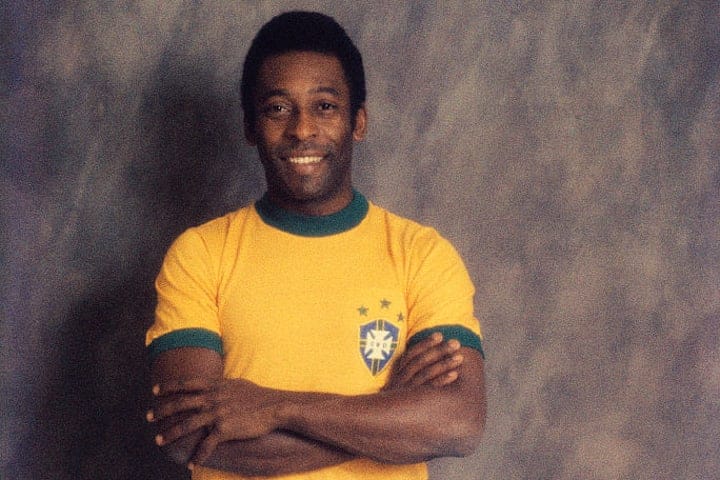
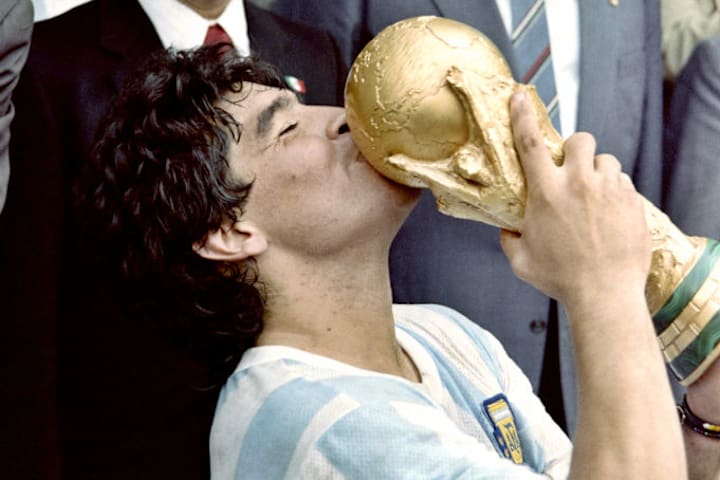
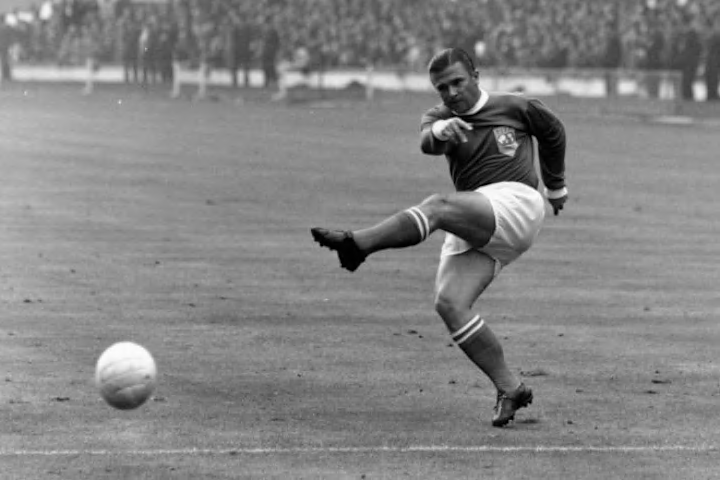
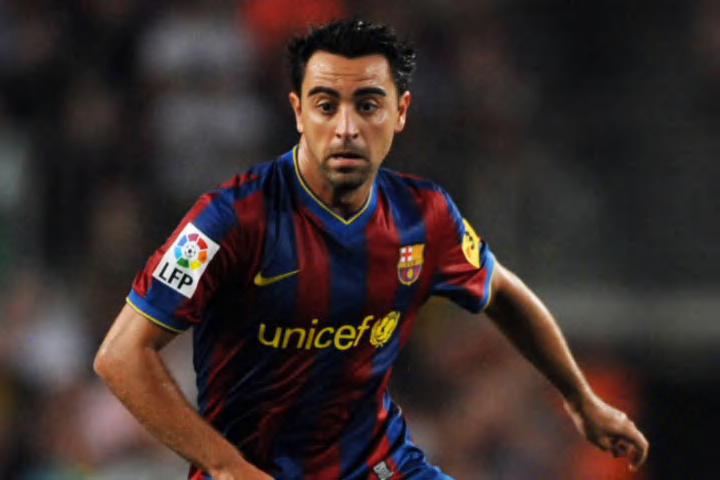
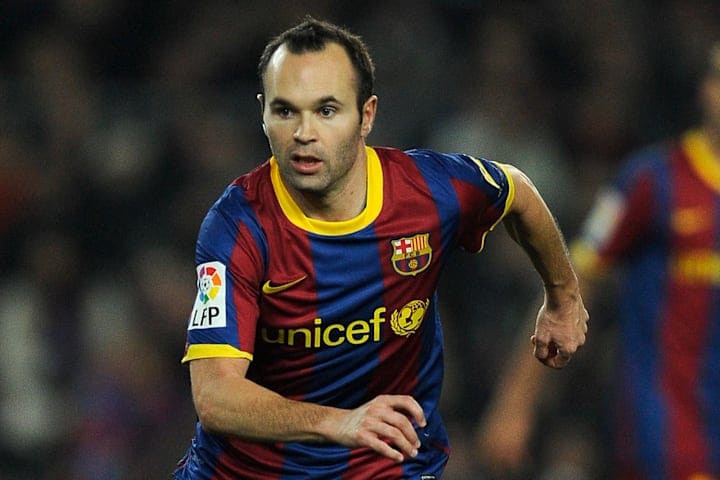


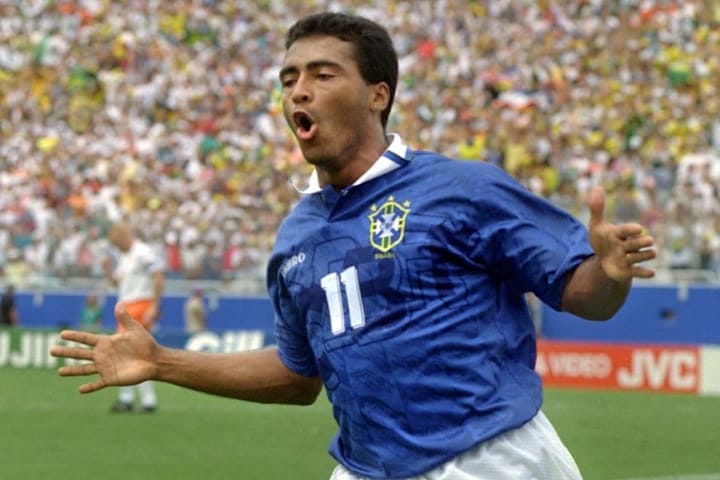
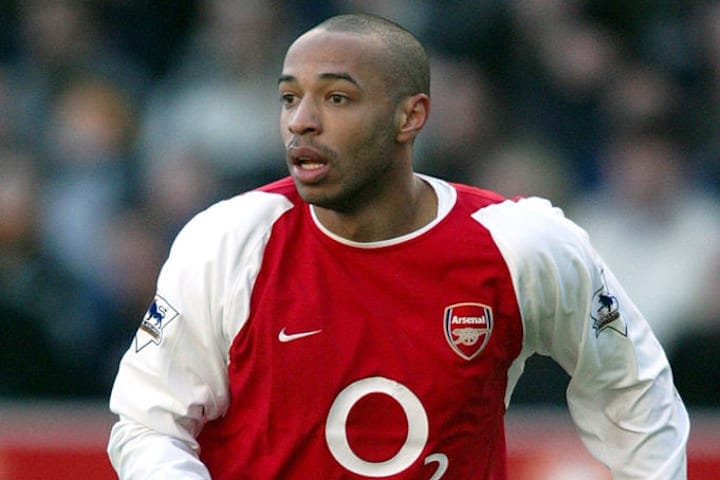


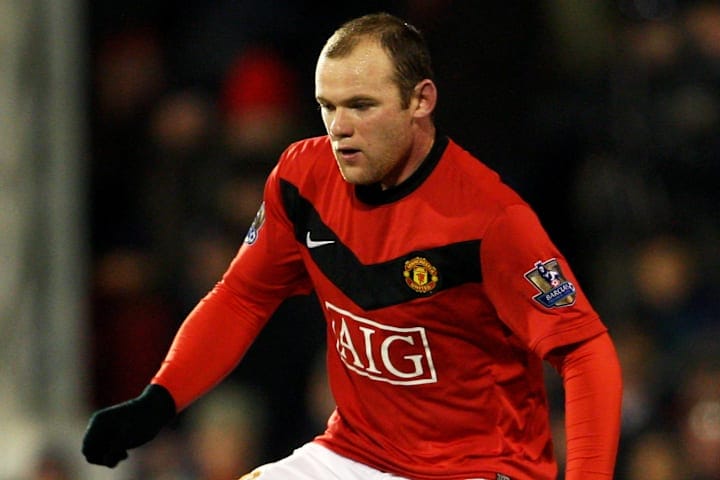

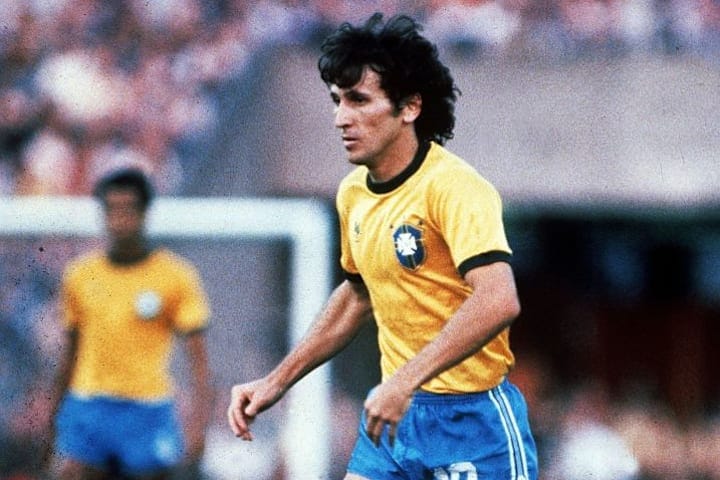
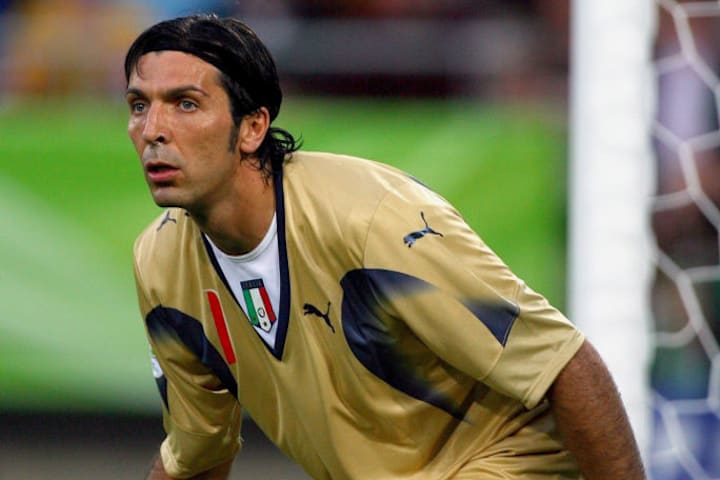
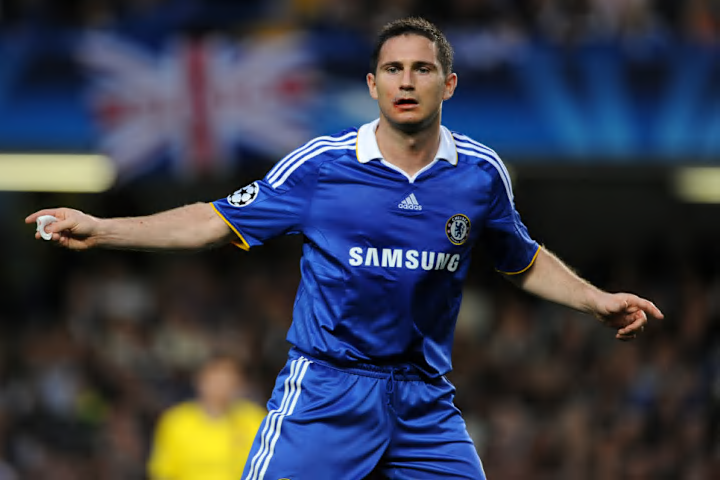
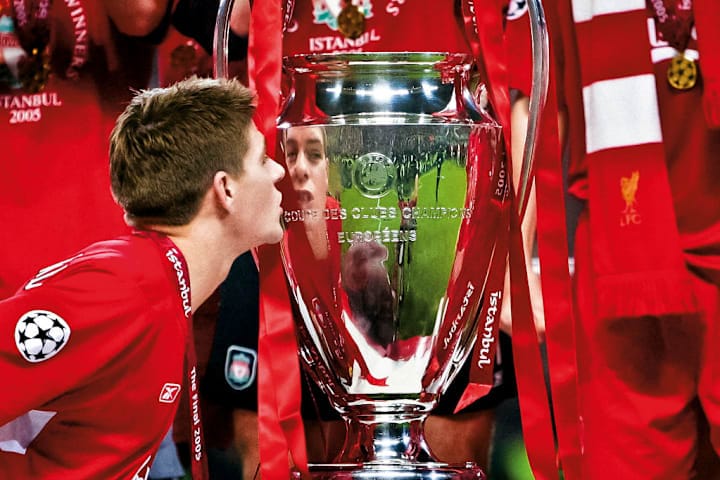
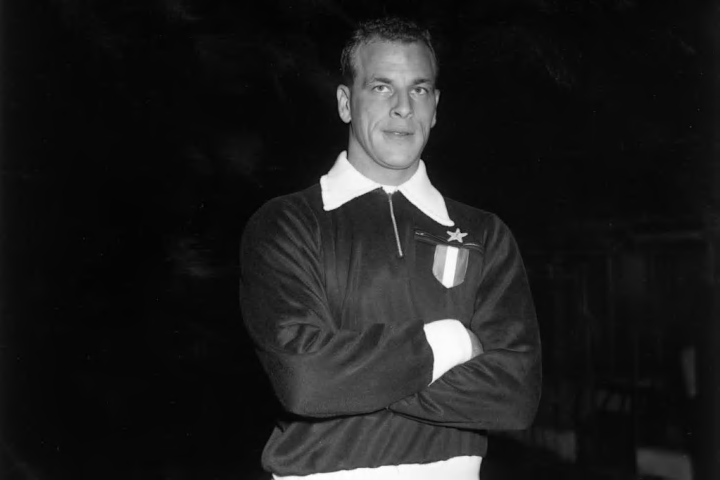
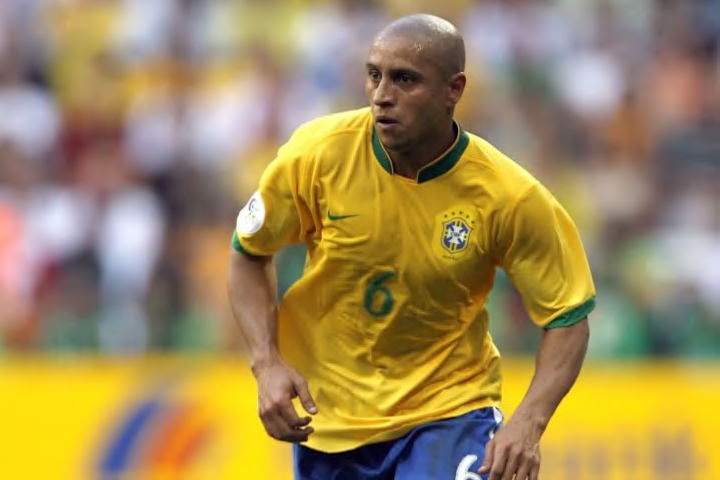

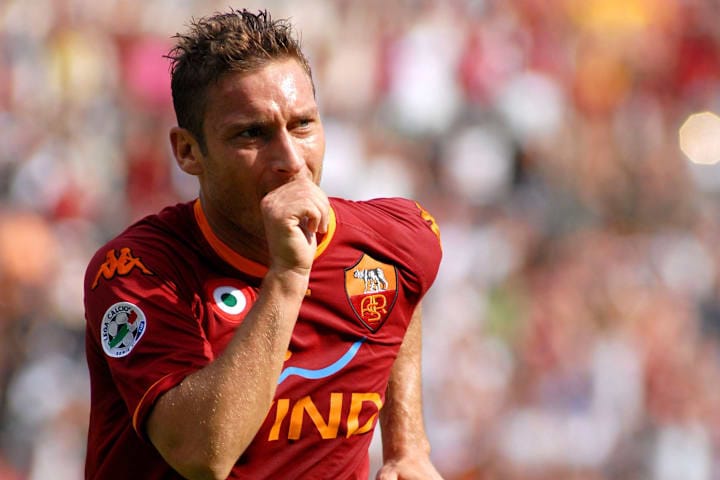

The Ballon d’Or has become known as the most prestigious individual prize in football, bestowing the title of the best footballer in the world on its winner each year.
It started out in 1956 as a way of recognising the best Europe had to offer – it was actually known as the European Footballer of Year for decades. It wasn’t until 1995 that non-European players, although still those based at European clubs, were eligible to win, while only in 2007 did it go truly global.
Generations of non-European players were not considered under the criteria, with many deserving winners at one time or another. Other players who were eligible but are legitimately considered as some of the greatest of their generation, simply never had their time.
Players like Kylian Mbappe, Erling Haaland and Vinicius Junior, while already destined to become legends of the sport, have not been included here while they are still in the relatively early stages of their careers. Others who could also feasibly yet win the Ballon d’Or are also omitted.
Best chances: 1958, 1959, 1960, 1961, 1962, 1963, 1964, 1965, 1970
Pele is one of the handful of players who can lay claim to being the greatest of all time. He was football’s first global superstar thanks to his breakout performances as a 17-year-old at the 1958 World Cup, the best in the world for the next eight years and sporadically after that.
France Football, the magazine which created and oversees the Ballon d’Or, named the Brazilian the Football Player of the Century in 1999. And because he was never eligible to actually win a Ballon d’Or, France Football retrospectively recognised Pele and several others from the pre-1995 era as worthy winners in an internationalised re-evaluation, although the official winners didn’t change.
In the alternative timeline, Pele would have won seven of them.
Best chances: 1986, 1987, 1989, 1990
Similar to Pele, an ineligible Diego Maradona was considered a worthy winner in 1986 and 1990. He could have also won in either 1987 or 1989 as the best in the world in the latter half of the decade.
Aside from his World Cup exploits with Argentina in 1986, Maradona took an unfashionable Napoli side to two Serie A titles, as well as the UEFA Cup. The club haven’t won a European trophy since and only broke a 33-year scudetto drought in 2023.
Best chances: 1959, 1960, 1961, 1962
Ferenc Puskas was at his absolute peak before the Ballon d’Or era began. He was the talisman of Hungary’s incredible golden generation in the early 1950s, going 32 games unbeaten, embarrassing England home and away in 1953 and 1954 and then becoming perhaps the greatest team not to win the World Cup in the latter year.
Politics splintered Puskas’ career, refusing to return to Hungary in 1956 following a suppressed uprising. After serving a two-year ban and by now 31, he signed with Real Madrid in 1958 and put up incredible goal numbers seasons after season. That included 47 during the 1959/60 campaign, culminating with four goals in the 1960 European Cup final.
Best chances: 2009, 2010, 2011
Xavi was the heartbeat of Spain and Barcelona‘s all conquering teams from the late 2000s into the following decade. But he was overshadowed time after time by teammate Lionel Messi.
Neither Spain nor Barcelona could have functioned as they did without Xavi, but it is also understandable why Messi won the Ballon d’Or four years in a row from 2009 until 2012.
Best chances: 2010, 2011, 2012
In the same boat as Xavi, Andres Iniesta will also be remembered as one of football greatest ever midfield players. The winning goal in the 2010 World Cup final was his crowning moment, but Iniesta was so much more and defined an era of success for club and country that has been unmatched.
Best chances: 1990, 1994, 2003
Some defenders get fans off their seats with aggressive front-foot play and last-ditch tackles. But Paolo Maldini made a career out of incredible anticipation and positioning, meaning he was nearly always one step ahead of the attackers he was up against.
Add that to his longevity and a record of success with AC Milan, particularly in the European Cup and Champions League, he was a worthy winner several times over.
Best chances: 1999, 2001
David Beckham’s contributions to Manchester United‘s treble-winning season in 1998/99 were enormous and all the more remarkable given they came off the back of a torrent of nationwide abuse and hate that could easily have broken him.
Revisionist perceptions of 1990s football and his celebrity-like status mean that Beckham often no longer gets the credit his talent and performances on the field deserve. In reality, he was second in the 1999 Ballon d’Or standings, the closest he came to winning one.
Best chances: 1993, 1994, 2000
Romario’s prolific career straddled the 1995 change in Ballon d’Or rules, although having played extensively for PSV Eindhoven and Barcelona, very little of his football after that point was played in Europe, which still made him ineligible.
The Brazilian routinely surpassed 30 goals for both PSV and Barca, at his best in 1993 and 1994. The latter was one of France Football‘s re-evaluated years, with Romario’s credentials also boosted by Brazil‘s first World Cup triumph in 24 years. In 2000, he scored 66 goals for Vasco da Gama.
Best chances: 2003, 2004, 2005
Thierry Henry finished second in the 2003 Ballon d’Or, considerably behind actual winner Pavel Nedved. He slipped further down the rankings in the subsequent years, but in 2004 was part of Arsenal‘s Invincibles generation and claimed the European Golden Shoe.
The Frenchman then retained that title as Europe’s top scorer in 2005 too.
Best chance: 2020, 2021
It is perhaps the greatest travesty in Ballon d’Or history that Robert Lewandowski didn’t win it in 2020.
The football eventually continued despite the Covid-19 pandemic putting everyday life on hold around the world, but the Ballon d’Or wasn’t awarded to anyone. Lewandowski had the best year of his career, scoring 55 times for Bayern Munich and winning the Champions League.
Even the year after, when Messi claimed the accolade, he scored 41 times in 29 league matches.
Best chances: 1995, 1996
That Alan Shearer received just a single vote and finished joint-last in the 1995 Ballon d’Or standings seems harsh. English football still wasn’t particularly well thought of in those days, but Shearer’s 34 Premier League goals steered Blackburn Rovers to domestic glory.
For scoring another 31 in fewer games in 1995/96, winning the top scorer award at Euro ’96 and becoming the then most expensive player in history, he finished third. His goalscoring feats in modern English football have ultimately been left unmatched.
Best chances: 2010, 2012
It counts against Wayne Rooney that the two best individual seasons of his illustrious career did not yield Premier League titles by the narrowest margins. In both 2009/10 and 2011/12, he showcased his ability as both a scorer of great goals and great a goalscorer for United.
Rooney was consistently excellent for the best part of a decade from 2004. That year in particular is a big ‘what if’ moment for both him and England, because the Ballon d’Or voting might have looked very different without a broken foot in Euro 2004’s quarter-final.
Best chances: 1983, 1984
It is highly likely Ian Rush’s record number of Liverpool goals (346) will never be broken. The Welsh striker scored most of those at a time when the Reds were the best club in Europe, winning the 1984 European Cup in the same season he racked up 47 across all competitions.
All-told, Rush was Liverpool top scorer in eight seasons across his two spells with the club.
Best chances: 1981, 1982
Brazil icon Zico fits the bill of never having been eligible to win the Ballon d’Or, as both someone whose career was over by 1995 and played predominantly outside Europe.
He was South American Footballer of the Year in 1977, 1981 and 1982, at a time when Brazil enjoyed a huge revival following a post-Pele slump. With Flamengo, Zico also dominated at club level, winning national titles, the Copa Libertadores in 1981 and then comfortably beating European champions Liverpool to the Intercontinental Cup.
Best chances: 2003, 2006
No goalkeeper has won the Ballon d’Or since Lev Yashin in 1963 and there is now a specialised award to recognise the position. But Gianluigi Buffon is one of those who has come closest.
Buffon is perhaps the greatest goalkeeper of all time and was a starter for leading Serie A clubs for two decades. He is a 13-time Serie A Goalkeeper of the Year winner and was named the world’s best goalkeeper by the IFFHS on five occasions.
Best chances: 2005, 2006, 2010
Frank Lampard changed what it meant to be a goalscoring midfielder during his career, perfecting it as an art form and guiding Chelsea to unprecedented success levels in their history.
Reaching levels of goalscoring consistency most strikers don’t achieve, Lampard contributed double figures in the Premier League for ten consecutive seasons, peaking at 22 (27 in all competitions) during the 2009/10 campaign.
Best chances: 2005, 2009
Steven Gerrard was Liverpool. He didn’t have the benefit of playing in an era when Liverpool were more financially competitive and smart, making it all the more impressive that the Reds won the Champions League during that time, with Gerrard carrying the team on his back.
Although it has now become a proxy for success, the 20th century history of the Ballon d’Or didn’t necessarily always reward trophies and instead focused on individual performances. With Liverpool often inconsistent in the Premier League, Gerrard would have thrived under such criteria.
Best chances: 1958, 1959, 1960
John Charles is perhaps the greatest footballer you’ve never heard of, with the towering Welsh star far from a household name that has stood the test of time outside of Leeds United and Juventus.
Adept as a centre-back too, he was unplayable in England in the late 1950s and had even more success in Italy at a time when foreign imports often struggled. It also remains a huge ‘what if’ moment in football history that Charles was injured and missed the 1958 World Cup quarter-final between Wales and Pele’s Brazil when he was at his absolute peak.
Best chances: 2000, 2002
The art of full-back play was completely redefined by Roberto Carlos during his career, turning the role into so much more than it previously was. The Brazilian became an extra winger and attacking force on the pitch that has inspired players for two decades since.
He won three Champions League and four La Liga titles with Real Madrid, as well as the 2002 World Cup with Brazil, but was arguably held back in Ballon d’Or stakes by being a defender first.
Best chances: 1988, 1989
Frank Rijkaard was one third of Dutch football’s world class triangle in the late 1980s. Alongside Ruud Gullit and Marco van Basten, he inspired AC Milan to European domination and the Netherlands to their only men’s international trophy to date.
But while Gullit and Van Basten each won at least one Ballon d’Or, Rijkaard was left out.
Best chances: 2000, 2001, 2007
Francesco Totti might have stood a better chance of winning a Ballon d’Or during his career had he been willing to leave Roma for bigger things. But it is admirable that he remained so loyal, playing a record 786 games for his boyhood club and still having the impact he did.
Totti was inspired at Euro 2000 with Italy, then winning Serie A with Roma in 2000/01, which remains their last scudetto. He later took a European Golden Shoe in 2007.
Best chances: 2015, 2017
Neymar has divided opinion during his career, with his 2017 transfer to Paris Saint-Germain a bit of a sliding doors moment. He had already enjoyed much success with Barcelona at that point and looked as though he could truly launch himself into the stratospheric elite when PSG came knocking.
Injuries have defined his career ever since, but being Brazil’s all-time top goalscorer automatically makes you a great and he has been good enough for a Ballon d’Or at various points.
READ MORE ON THE 2024 BALLON D’OR NOMINEES & FAVOURITES
Source link




